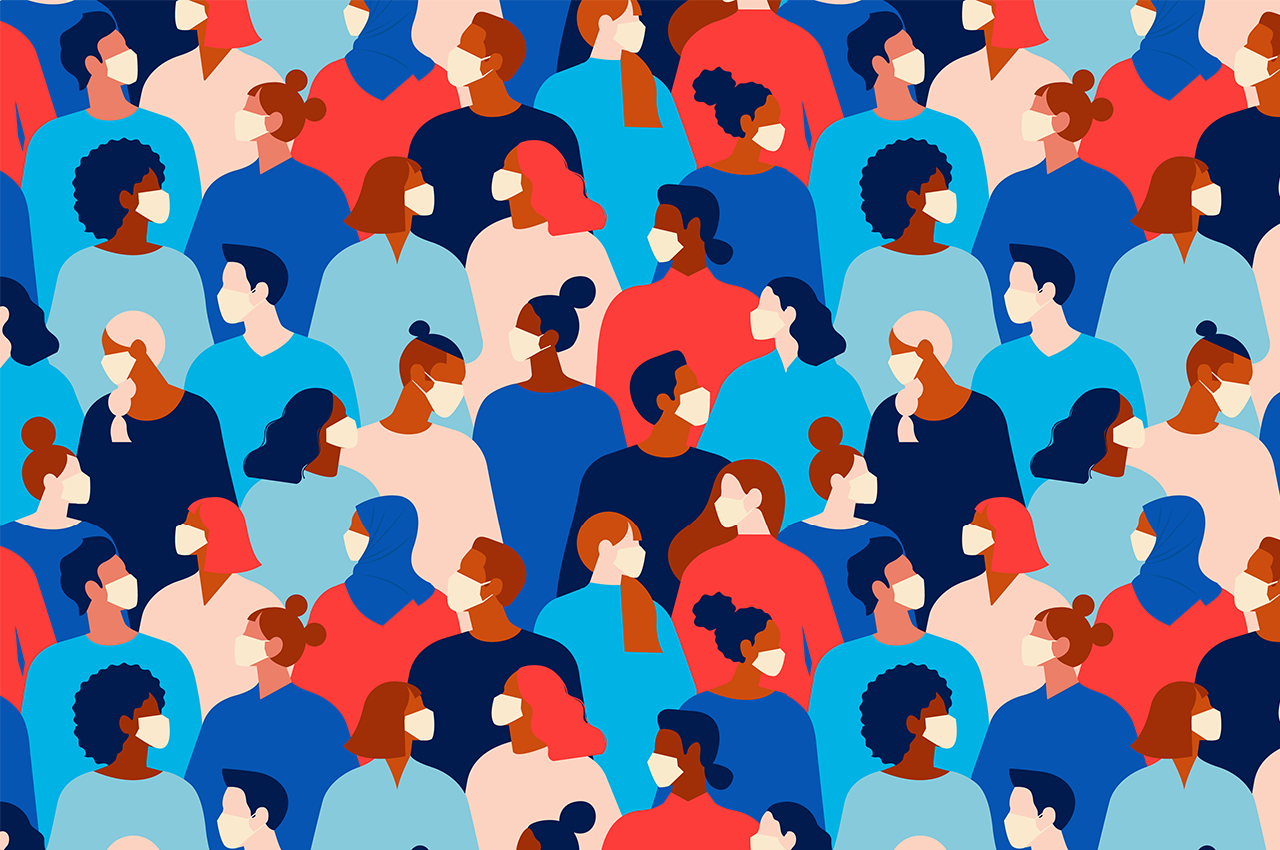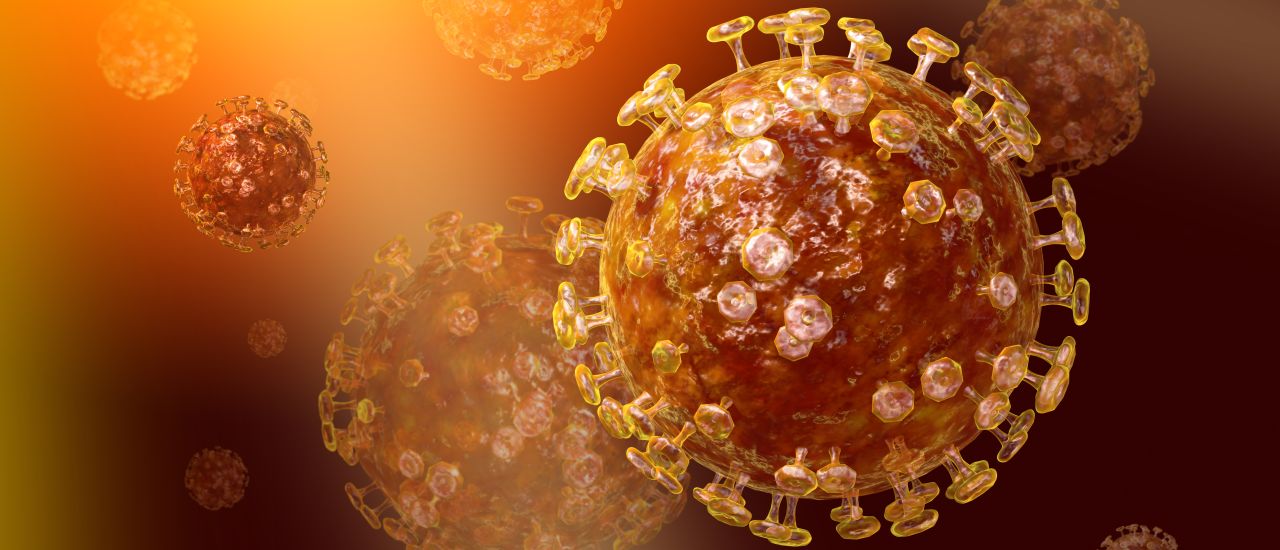Where and when did it all begin?
On the 31st of December 2019, China alerted the World Health Organisation to several patients with flu-like symptoms in a city called Wuhan, the capital of Central China’s Hubei province. Initial assessments of these patients ruled out “known” flu-like viruses including bird flu, seasonal flu, severe acute respiratory syndrome (SARS) and Middle East respiratory syndrome (MERS).
Once these initial patients were assessed, they were placed into quarantine. The suspected source of the outbreak was identified as a busy seafood market in the city the following day. Days later Chinese authorities identified the virus, called Coronavirus, a family of viruses including the common cold, SARS and MERS. The new virus was named 2019-nCoV.
What is a coronavirus?
Coronaviruses were first discovered in the 1960s and their name comes from their crown or halo-like shape. Their danger lies in their ability to adapt. This means they can easily spread between and infect different species. While some coronaviruses can cause the common cold, others can develop into more serious illnesses that lead to difficulty breathing, pneumonia and death.
Where did it come from?
Scientists have confirmed that the Coronavirus, like around 70% of new human pathogens, was transmitted from an animal. Genetic analyses have come up short of pinpointing the culprit so far, but among the prime suspects is the pangolin, a long-snouted, ant-eating mammal virtually unknown in the West but widely prized in China as a delicacy and for its purported medicinal virtues. In February 2020, China placed a ban on trading and eating several different types of wildlife, including pangolin.
Spreading like wildfire
As a respiratory virus, Coronavirus is spread primarily through droplets generated when an infected person coughs or sneezes, or through droplets of saliva or discharge from the infected person’s nose.
By mid-March, 2020, the virus had touched every continent, with more than 126,000 confirmed cases, and a total of 4,600 deaths. On 5th March, the first South African case was confirmed in a resident of Kwa Zulu Natal who had recently travelled to Italy. (For live updates and virus tracking, visit https://www.arcgis.com/apps/opsdashboard/index.html#/bda7594740fd40299423467b48e9ecf6)
Who is at risk?
Those most at risk of contracting the Coronavirus include those who have existing heart or lung diseases, people with weakened immune systems (e.g. HIV, TB, diabetes or cancer), infants, and older adults.
What are the symptoms?
Patients who have contracted the virus have experienced fever, shortness of breath and coughing. The virus can also cause bronchitis and pneumonia, an infection that inflames the air sacs in the lungs and can cause them to fill with fluid.
The incubation period for a virus is the time between catching the virus and showing symptoms of the disease. For Coronavirus, health officials estimate an incubation period of between one and 14 days. Most people start showing symptoms about five days after becoming infected.
What you can do to protect yourself
Most importantly: DON’T PANIC. Your best defence in preventing Coronavirus is a strong immune system. One of the biggest factors impacting immunity is stress, so the less time you spend worrying about contracting the virus and the more time you spend proactively staying healthy, the better your immunity becomes.
The media is abuzz with reporting new cases as they appear around the world. One aspect of Coronavirus seldom reported is the recovery rate. Of the 96,000 plus people who have contracted the virus, more than 55,000 have recovered.
To protect yourself and your family, follow these rules:
- Wash your hands often, using the proper technique. If you only do 1 thing, make it this. Always use soap and rub your hands together for at least 20 seconds. Make sure you wash and rub the entire hand surface, including the back of your hands.
- Keep your distance. Aim to keep at least 1 metre between yourself and someone who is coughing or sneezing.
- Fist pump don’t shake. Fist bumps transfer only about 10% of the number of germs that handshakes do (out of interest, high 5’s transfer around 50%)
- Avoid touching your face. The average person touches their face around 23 times per hour. Germs on your hands are easily transferred into your body via the mucus membranes of the eyes, nose and mouth. Keep your hands busy by holding a pencil, or a stress ball
- Practise respiratory hygiene. Cover your nose and mouth with a tissue or elbow when coughing or sneezing
- Seek medical care early. Stay at home if you feel unwell, even if your symptoms are mild. If you have a fever, cough and difficulty breathing, reach out to Hello Doctor immediately and speak to our doctors anytime (24/7) about your own personal concerns, what you should do and where you can be tested if need be.
Social media is flooded with stories and images about the virus, many of which are not true. In the case of Coronavirus, knowledge is power. Limit your worry and anxiety by limiting your, and your family’s exposure to media coverage that you perceive to be upsetting. Stay informed about developments using reliable and reputable sites and channels only.
Busting a few myths about Coronavirus
- Coronavirus cannot be transmitted through goods manufactured in China or any other country reporting cases
- Having a hot bath will not prevent you from catching Coronavirus. Your normal body temperature remains around 36.5°C to 37°C, regardless of the temperature of your bath or shower.
- To date, there has been no evidence to suggest that the new coronavirus could be transmitted by mosquitoes.
- Hand dryers are not effective in killing the virus
- Spraying alcohol all over your body will not kill viruses that have already entered your body. There is also no evidence that regularly rinsing the nose with saline can offer protection from coronavirus
- Existing vaccines against pneumonia do not provide protection against the new coronavirus. Since the virus is so new and different, it needs its own vaccine
- While garlic is a healthy food that may have some antimicrobial properties, there is no evidence it can prevent infection from Coronavirus
- Antibiotics are powerless against Coronavirus since they are effective only against bacteria.


